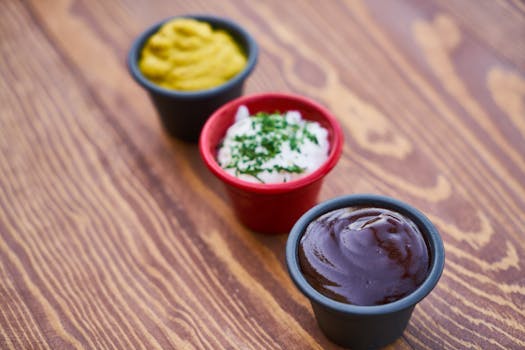Mayonnaise is a staple in many human diets, adding creaminess and flavor to sandwiches, salads, and dips. But as a dog owner, you might wonder: can dogs eat mayonnaise? While it’s tempting to share your food with your furry friend, not all human foods are safe for dogs. Let’s break down the risks, benefits, and vet-approved advice on mayonnaise for dogs.
🥄 What Is Mayonnaise Made Of?
To understand if mayonnaise is safe for dogs, it’s important to look at the ingredients. Traditional mayonnaise is made from:
- Egg yolks
- Vegetable oil (such as soybean or canola oil)
- Vinegar or lemon juice
- Salt
- Optional seasonings like mustard or sugar
These ingredients are not toxic to dogs in small amounts, but they aren’t exactly healthy either. Let’s take a closer look at why.
🐾 Is Mayonnaise Safe for Dogs?
Mayonnaise is not toxic to dogs, but it’s not considered a healthy treat. Feeding your dog mayonnaise can lead to certain risks, especially if consumed in large quantities. Here’s why:
- High fat content – Mayonnaise is loaded with fats, which can cause weight gain and contribute to obesity in dogs.
- Risk of pancreatitis – Consuming fatty foods like mayonnaise can trigger pancreatitis, a painful and potentially serious inflammation of the pancreas.
- Upset stomach – The richness of mayonnaise can lead to digestive issues such as diarrhea or vomiting.
If your dog sneaks a small lick of mayonnaise, there’s no need to panic. However, regular consumption or large amounts can be harmful.
🥗 Are There Any Benefits of Mayonnaise for Dogs?
While mayonnaise is not a recommended food for dogs, it does contain some nutrients that may be beneficial in tiny quantities:
- Egg yolks – A source of protein and essential fatty acids.
- Healthy fats – Can support coat health in moderation.
That said, there are far healthier ways to provide these nutrients to your dog. Foods like cooked eggs, fish oil, or a balanced dog food formula are much better options.
🚫 When Should You Avoid Mayonnaise Completely?
There are certain situations where mayonnaise should never be given to your dog. Avoid mayonnaise if your dog:
- Has a sensitive stomach or a history of gastrointestinal issues
- Is prone to obesity or is already overweight
- Has been diagnosed with pancreatitis
- Is allergic to eggs
If you’re unsure whether your dog can safely consume mayonnaise, consult your veterinarian for personalized advice.
🌟 Healthy Alternatives to Mayonnaise
Instead of mayonnaise, consider offering your dog these healthier, vet-approved treats:
- Plain cooked chicken or turkey
- Small amounts of plain yogurt (unsweetened and unflavored)
- Slices of cucumber or carrot
- Mashed sweet potato
These options are lower in fat and provide nutritional benefits without the risks associated with mayonnaise.
🧐 What Should You Do If Your Dog Eats Mayonnaise?
If your dog accidentally eats a small amount of mayonnaise, monitor them for any signs of discomfort, such as:
- Diarrhea
- Vomiting
- Lethargy
- Poor appetite
In most cases, a small amount of mayonnaise won’t cause serious harm. However, if your dog consumes a large quantity or shows concerning symptoms, contact your veterinarian immediately.
FAQs
Can dogs eat flavored mayonnaise, like garlic or chipotle mayo?
No, flavored mayonnaise often contains seasonings like garlic, onion, or spices that are toxic to dogs.
Is light or low-fat mayonnaise better for dogs?
Light mayonnaise has reduced fat but may contain artificial sweeteners like xylitol, which is toxic to dogs. It’s best to avoid it altogether.
Can puppies eat mayonnaise?
Puppies have more sensitive digestive systems, so it’s safer to avoid giving them mayonnaise.
How much mayonnaise is too much for a dog?
Even a tablespoon of mayonnaise can be too much for a small dog, as it’s high in fat. Always err on the side of caution and avoid feeding mayonnaise to your dog.
References
Book a $49 online vet consultation at https://www.dialavet.com for fast, expert advice.







